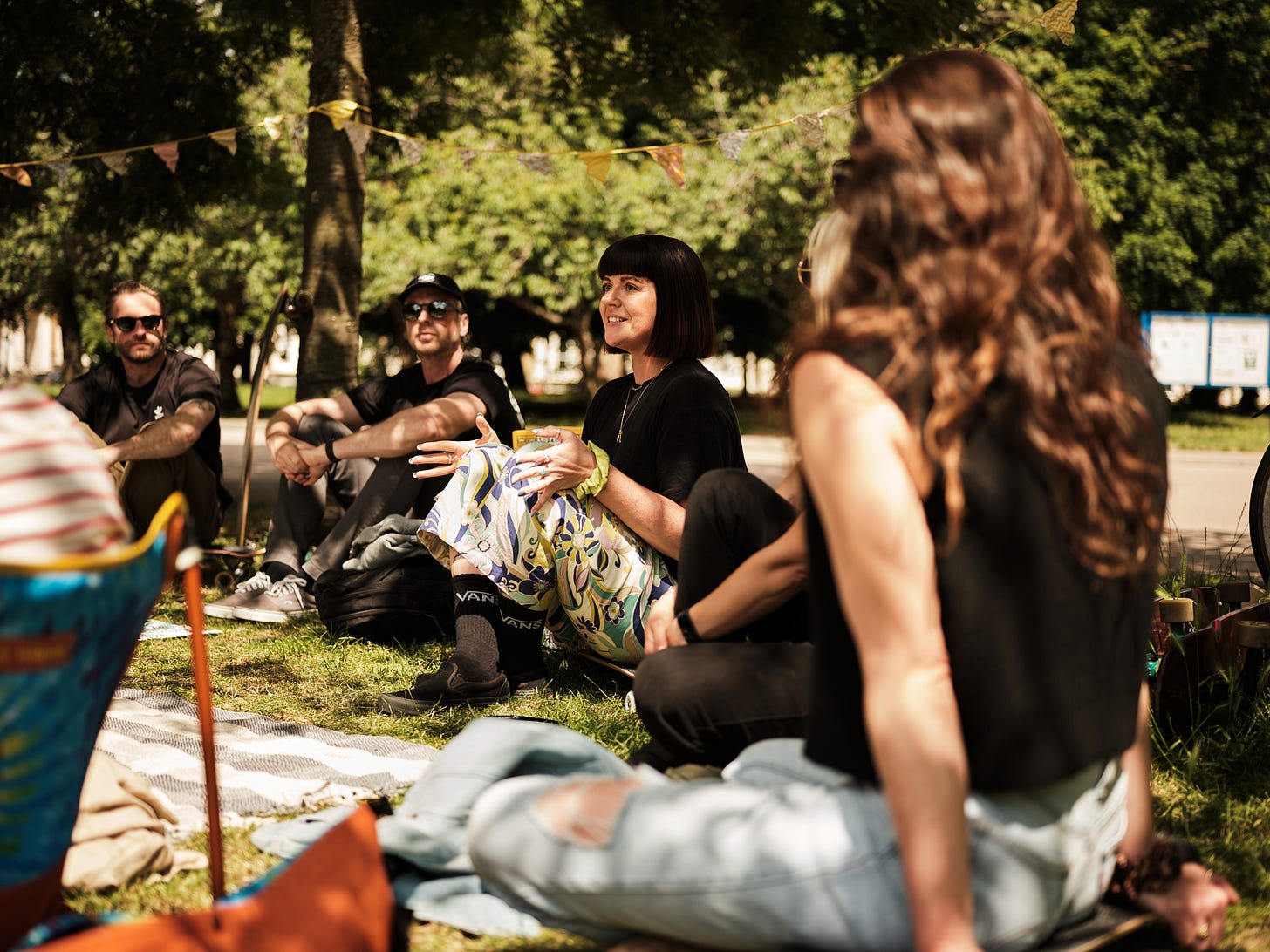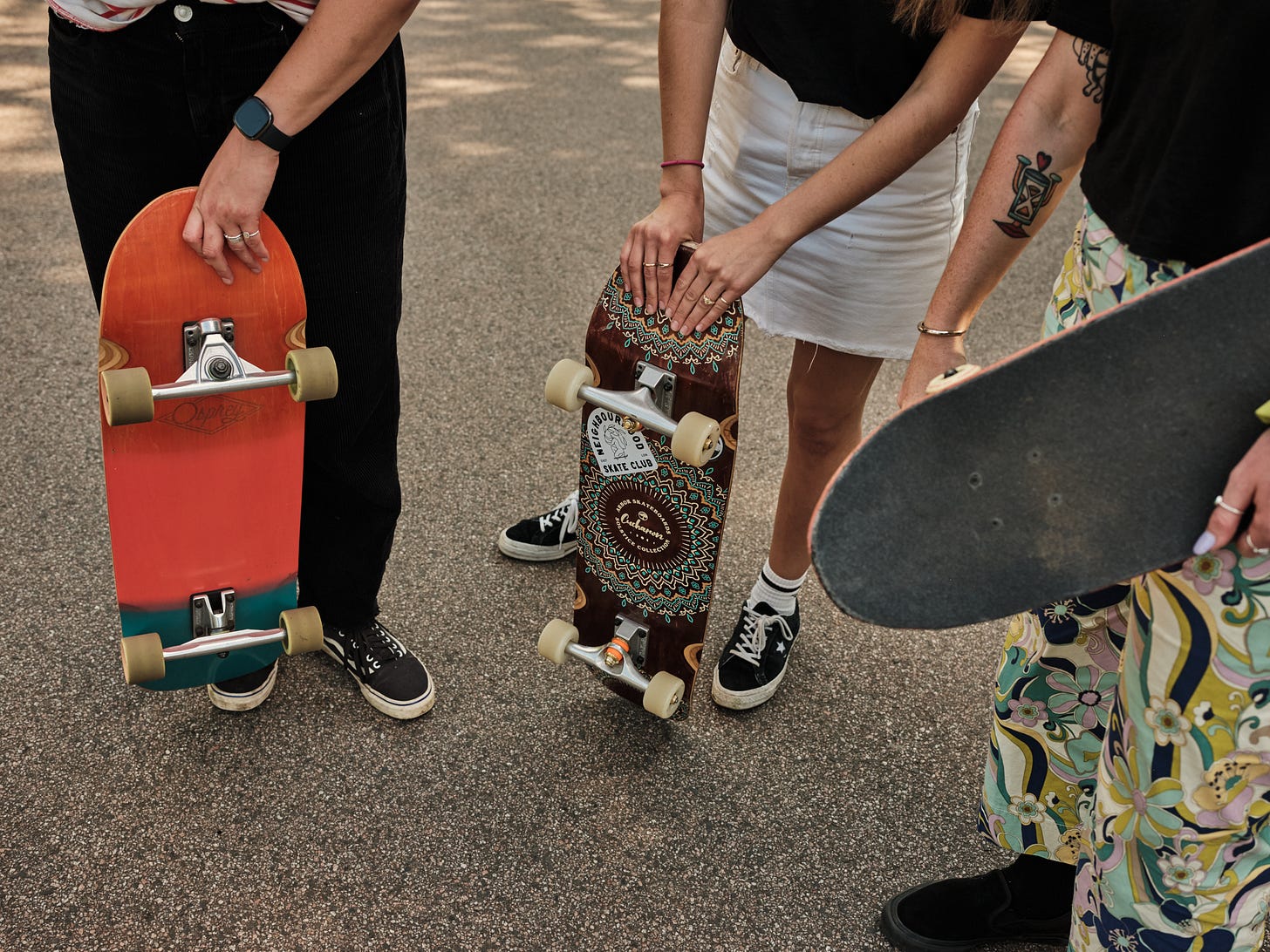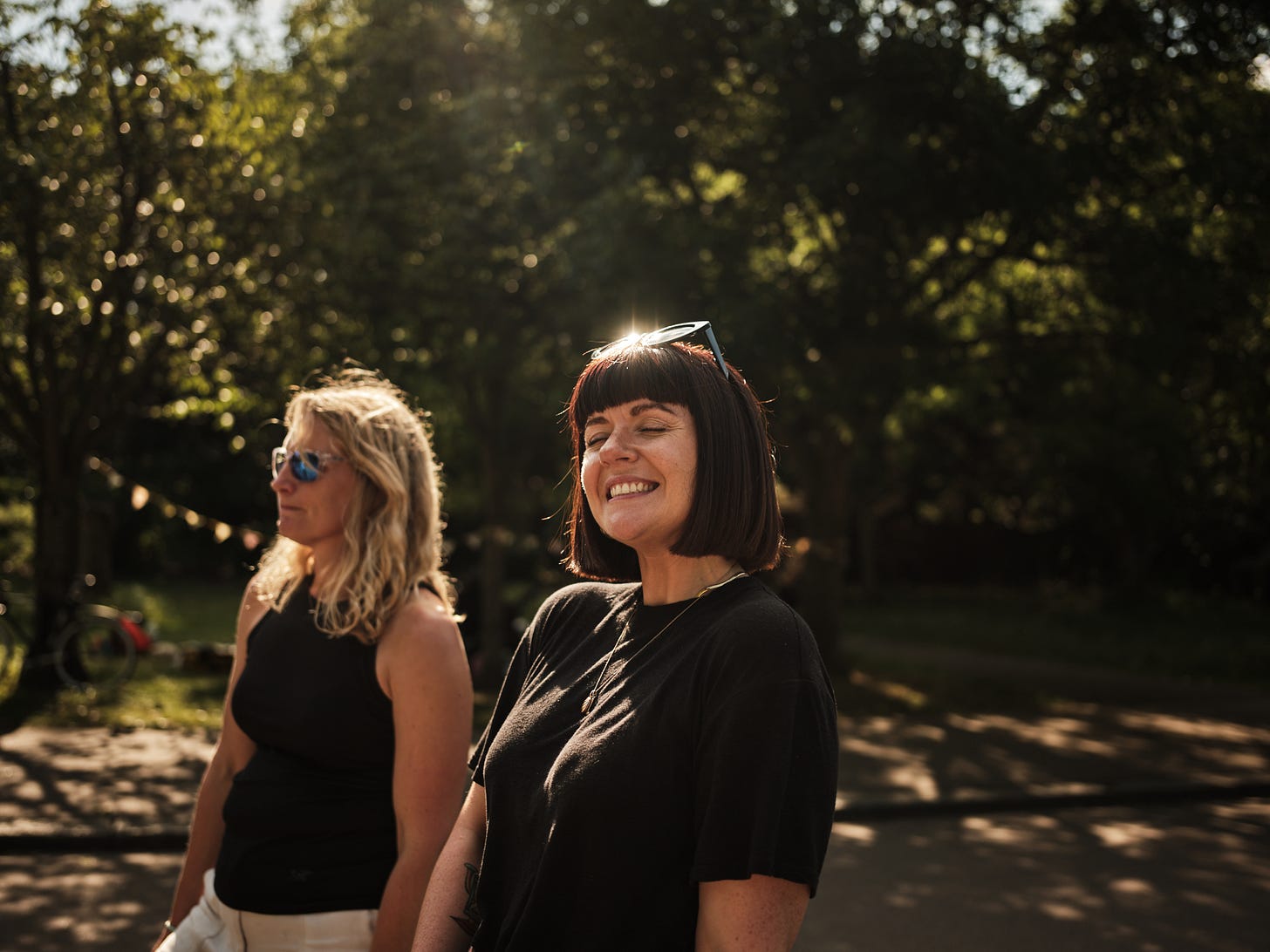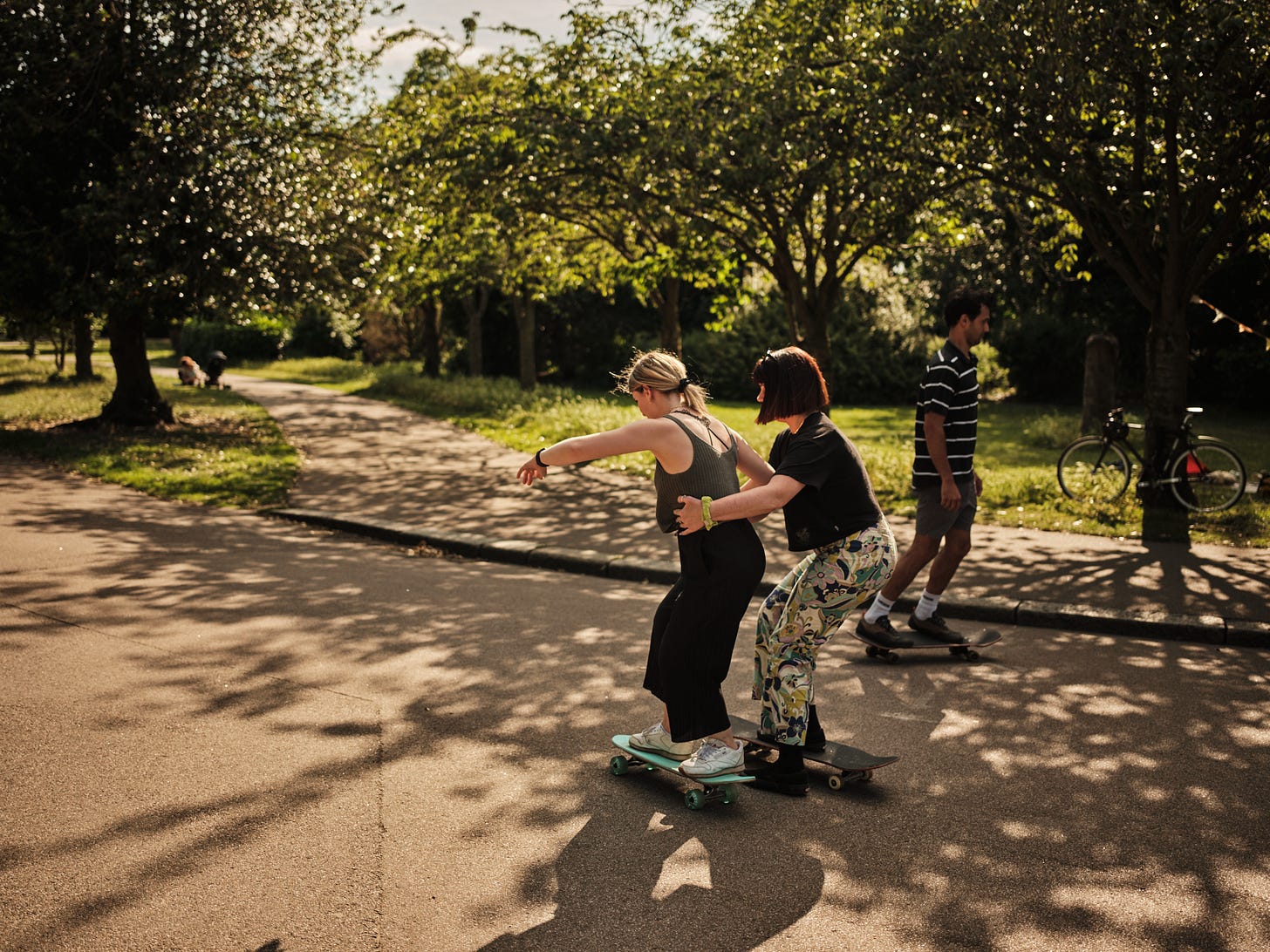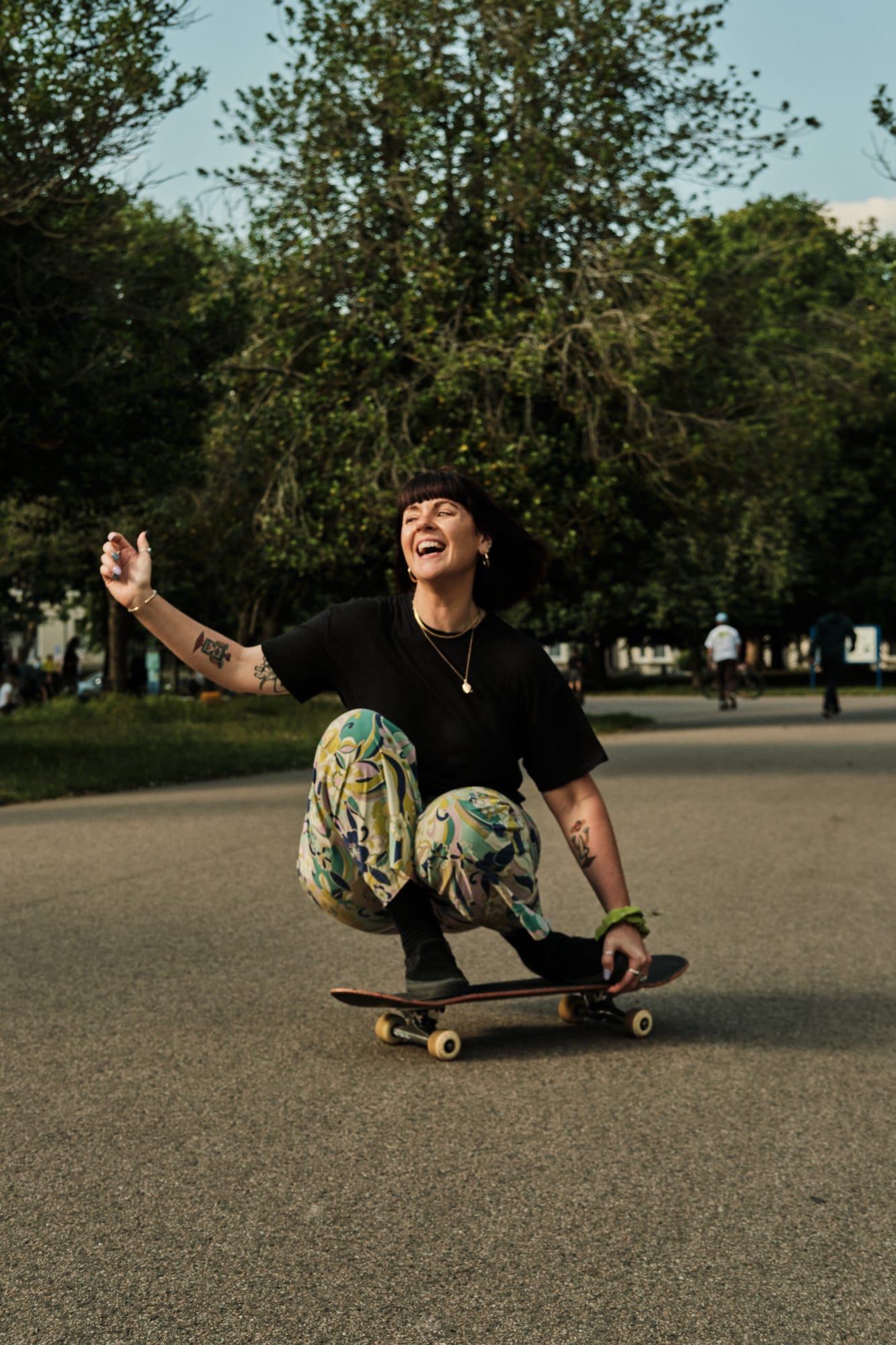5 Things I've Learned From Starting Neighbourhood Skate Club
ACM Account Director Lyndsay McLaren on lessons learned from her brilliant side project
There are few greater pleasures in life for me than watching somebody who never in a million years believed they would be able to skateboard find the confidence to make their first push. But when I started Neighbourhood Skate Club in early 2021, I wanted to do more than help people learn to skate. I wanted to drive change.
I’ve worked in the skate, outdoor and action sports industries for ten years now, and I’ve been a skateboarder the entire time. But for years, I was consumed by imposter syndrome whenever I called myself one. When I think back to my early years in the industry, and the questions I was asked, I can understand why.
“Do you actually skate, though?”
“What tricks can you do?”
“You don’t look like a skater!”
“Prove it, show me a video!”
Thankfully, times are changing. The skateboarding industry still has a lot of work to do to establish a truly diverse and inclusive workforce, especially at leadership level, but it’s also important to recognise the growth in participation among minority genders in what was once a cis-male dominated world.
There is a downside, though. With more women skating than ever, there’s been a big increase in catcall culture. You know the sort of thing: “Show me your moves, skater girl”; “Yes baby, ride that skateboard”; “Show me more, sexy”; and so on (and on).
That’s why Neighbourhood Skate Club was born. To create a safe and inclusive space for women to skate, away from places where imposter syndrome and unwelcome attention can strike, with regular community focused events for all abilities.
Neighbourhood Skate Club might be centered around skateboarding and learning how to feel confident and in control on a board, but the community we’re building is also committed to standing up for ourselves and others, addressing issues such as consent, public sexual harassment, domestic violence, catcalling and male violence against women, offering support to survivors and victims.
The Neighbourhood Skate Club community now includes thousands of us, with hundreds of people learning how to skate “the Neighbourhood way” at 1-2-1 lessons held everywhere from London and Leeds to Aberdeen and Inverness.
I also now proudly call myself a skateboarder without worrying about the questions or remarks I might receive. Not only are more women getting on boards, but more people are realising that skateboarding is for everyone who wants to have a go.
Here are five things I’ve learned from my time running Neighbourhood Skate Club.
1. Anyone, anywhere can drive positive change
You don’t need a qualification or a title to make a difference. Whether it’s starting a community group or simply going the extra mile to make somebody feel more comfortable and more welcome in a space, you don’t need permission from anybody. And you certainly don’t need to be the best skateboarder, cyclist, climber or snowboarder.
We all need to take responsibility for our own behaviours and educate ourselves about racism, privilege and other biases, while seeking feedback from people in underrepresented groups. That’s how we become better confidants and allies, and how we learn to spot bias at the skatepark, at work, in the supermarket and on the streets, intervening decisively if we discover it. If we see something, we need to say something.
2. Collaboration over competition, every time
It’s time to break the cycle of female rivalry. So often women and queer people have to fight for equality, especially in industries, communities or spaces that are traditionally dominated by men. And when there are fewer opportunities for us, it’s easy to feel like we need to compete for whatever crumbs are left.
But we don’t need to emulate men in order to find acceptance. We can do it on our own terms. And if you’ve already “made it” and feel confident and comfortable enough to skate wherever, then don’t intentionally (or, indeed, unintentionally) haze others by putting them through the same challenges you experienced.
There’s no longer only one seat at the table; there’s room for all of us. So let’s work together to make sure we all get there.
3. Put your money where your mouth is
Show that you support and believe in something with action, not just words. For me, that means collaborating, hiring and paying non-male skaters, photographers and artists, and helping provide opportunities and experiences for people who might not have been given them in the past.
It means supporting other organisations, groups and communities that are on a similar mission by sharing their content, donating to their causes, buying their merch and showing up to their events.
I try to do all these because I feel a responsibility to help show that skateboarding – and the skateboarding industry – doesn’t belong to one section of society.
4. Get paid for your time
It’s taken a while to get here, but I’ve finally come to terms with the fact that my time, efforts and expertise can – and should – come with a price. While it’s not the driving force behind Neighbourhood Skate Club, financial support means I can continue to keep running lessons and putting on community events, both of which can be emotionally and physically demanding.
Getting paid for my time also means I can invest back in a community that not only increases participation but also benefits the wider skateboarding industry.
5. Make sure to take care of yourself
Self-care is so important. In order to show up as the people we prefer to be, we need to look after our wellbeing. Whenever we have responsibility for looking after others, whether it’s a community like the one that’s grown around Neighbourhood Skate Club, employees, children or parents, then self-care is always essential so that we can give them our focus without burning out.
Put simply, by prioritising self-care, we’re able to give more back to others. We can’t bring about change or help others if we’re not operating from our best place.
Enjoyed this post?



